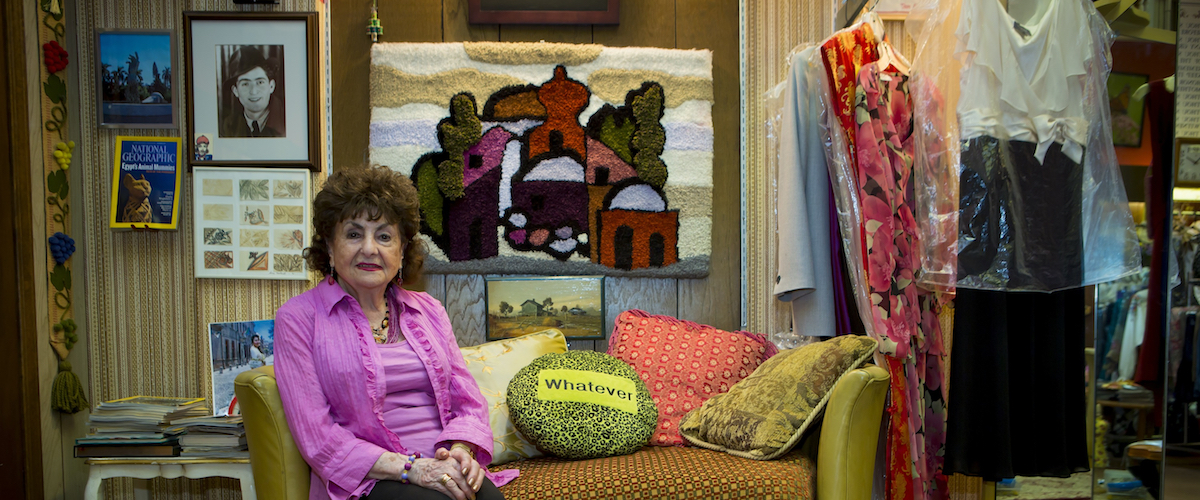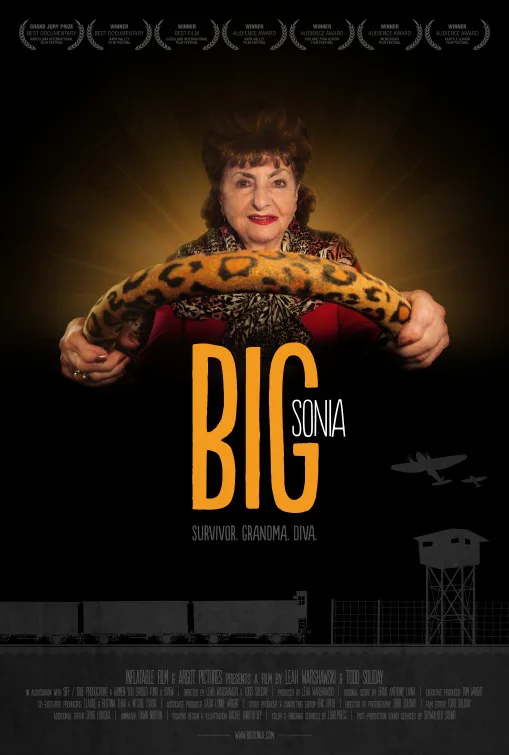Leah Warshawski has an extraordinary family member she’d like you to meet—her Holocaust-surviving, tailor business-owning, public speaking, gefilte fish-cooking grandmother, Sonia. In one way or the other, Sonia might inspire you to focus on what you have right now at this moment. Your family, your passions, or even your freedom. Over the course of “Big Sonia,” we see her interact with family members, young students and prisoners and witness the spiritual impression that she makes. As co-directed by Warshawski and Todd Soliday, this loving tribute of a documentary essentially aims to expand Sonia’s audience.
The film starts with her in the present, as the 30-year owner of a beloved tailor shop in a mall that has long been abandoned, and as a public speaker, who shares with audiences of all ages (students, inmates in particular) her stories about surviving three death camps during the Holocaust. She’s also a great grandmother (grandiose might be a better word) in a massive family she is the center of. As we see her nowadays with her big hair, dynamic color outfits and penchant for animal print, her life is filled with as much pizazz and love as the sadness and trauma in her past, which is expressed through talking head interviews and articulated by effective animated sequences of death camps. In those moments, Sonia often seems to look away from the interviewer, holding back tears revisiting memories about losing family members and being beaten during the Holocaust, but providing a stoic example of the human spirit.
It’s no small feat to contain an entire life inside a documentary, but “Big Sonia” aims for that, at the clear detriment to its pacing. We get a lot of family background, a few redundant notes on how she’s the single plant in the dead garden of a mall, and even an extended scene about her buying fish. It doesn’t help that the doc can be unfocused when showing all of her different roles, in which the broad objective of simply sharing Sonia with us, and making sure we understand how great she is, runs extremely thin. Feeling like a director’s cut that would play best for people who already know her, “Big Sonia” is a feature that could have very likely made a deeper impact with the succinctness of a short film.
But “Big Sonia” has a special power in documenting the active influence she has on so many people, whether they have known Sonia for their whole lives or over the course of just one speaking session. The strongest scenes of the documentary involve seeing others share with her, and us, the ways they identify with Sonia’s pains about family and her way of choosing love at the end of such horror. “It’s hard for a good person to understand,” she tells a group of students. The same goes for a sequence later in which she talks to a quiet room of male inmates about her experience in the death camps, detailing atrocities by one person to another, beyond their comprehension. She leaves them with a perspective on forgiveness that could come from very few other human beings, and it makes for impacting yet unfussy moments in documentary filmmaking.
“Big Sonia” seems to have the same goals as a few other docs (the recent “Destination Unknown” documents numerous Holocaust survival stories), yet it has a prevailing intimacy. In the interviews that express how Sonia has influenced her family—showing how trauma goes beyond a first generation, in particular—it features moments a documentary by an outsider may not have gotten, or with the same warmth. Such a passage is when Warshawski’s father, Morrie, reads a poem he wrote a long time ago about Sonia but had forgotten about. As he reads the poem out loud for the camera, a certain image of Sonia’s pain resurfaces and he breaks down. The interviewer, Warshawski, immediately comes into frame and comforts him for a shot that captures the gesture, but cuts before it becomes anything more than a family moment. Her emotional reflex is the power of family and love in action. It is those values, their importance verified by Sonia and then perpetuated by others who have known her, that make this a documentary of special comfort.




















